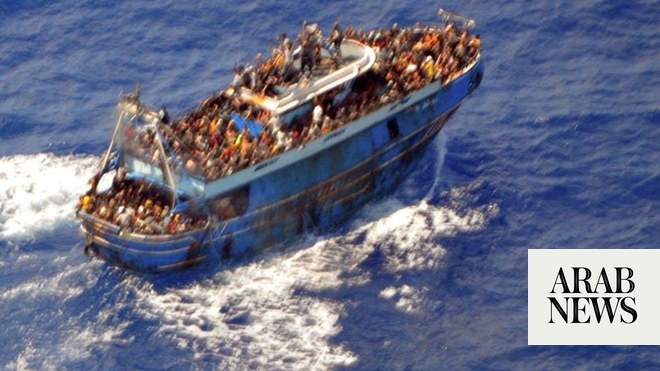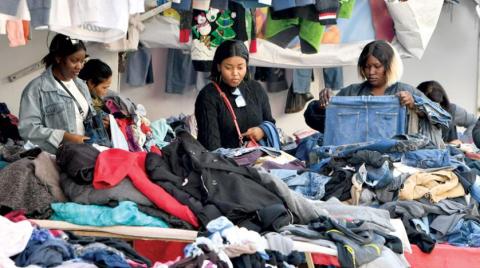
Human rights groups raised the alarm Wednesday the "abusive" policy adopted by Greece to continue containing asylum-seekers on its islands.
Greek authorities are trying to legislate curbs on migrants’ movements to try to cancel out a court ruling on April 18 that individuals landing on Greek islands should no longer be held there.
Lawmakers started discussing the legalization on April 24.
“Containing asylum seekers on the Greek islands in substandard and appalling conditions that violate their rights and Greece’s international obligations cannot be justified for migration control purposes,” 21 human rights groups, including Human Rights Watch and Amnesty International, said.
“Greece’s abusive containment policy was put in place in March 2016, with the support of the European Union and its member states.”
Asylum seekers have been prohibited from traveling beyond five Greek islands since March 2016, when the EU agreed with Ankara to seal off a sea route used by hundreds of thousands in 2015 to flee conflict in places like Syria and Iraq.
The Council of State, Greece’s top administrative court, had upheld a petition by an advocacy group that there was no overriding reason of public interest to justify a travel ban on asylum seekers. The ruling had applied only to new arrivals.
In response, Greece introduced an administrative order restating the ban on movement as a stop-gap until legislation on the matter is approved by lawmakers.
As of Wednesday, 15,749 people were being held on the islands, most in severely overcrowded camps holding at least double their capacity.
Greek officials have reported a rise in arrivals after a relative lull. “There has been an increase in inflows particularly since March 25,” Migration Minister Dimitris Vitsas told real FM radio.
“We are effectively looking at a tripling compared to last year and a doubling since January to February.”
More than one million people, mainly fleeing war in Syria, crossed to Greece from Turkey in 2015 after the onset of the blocs worst migration crisis since World War II.
The influx has been sharply cut since the European Union signed a controversial deal with Turkey in 2016 to send back migrants.
Migrants have languished in camps on five Greek islands awaiting their asylum claims to be processed. This has fuelled despair and sparked protests and outbreaks of violence.
Greece, a country of 11 million people, recorded 58,661 asylum applications last year, making it the member state with the highest number of asylum seekers per capita, according to official data.











